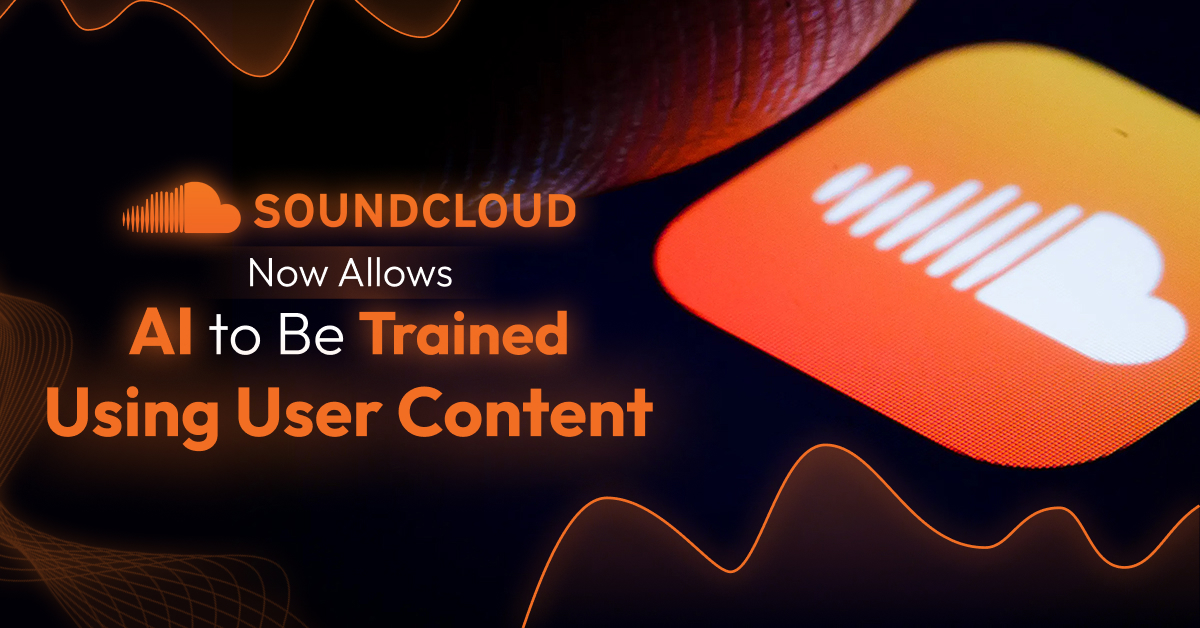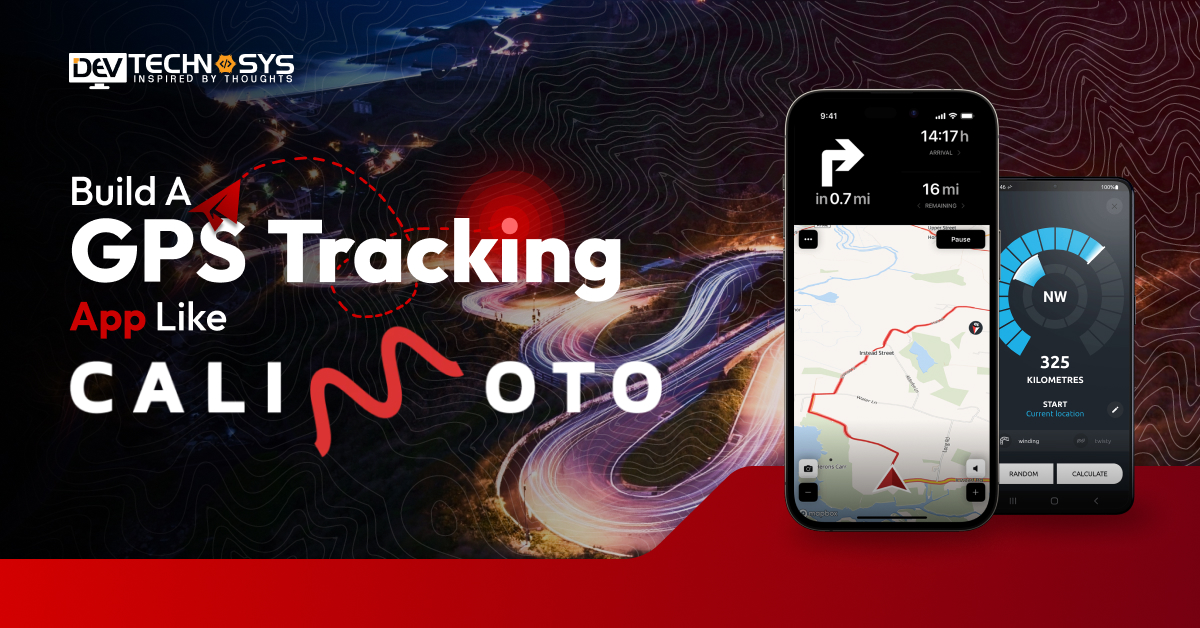“SoundCloud Now Allows AI to Be Trained Using User Content”
The notion for the music industry, that involves the fact SoundCloud now allows AI to be trained using user content, is transforming the whole sector. The platform will provide access to audio recordings and metadata with permission from artists, allowing for more sophisticated, customized, and imaginative AI capabilities.
This move raises significant issues about data rights, transparency, and compensation while placing SoundCloud at the forefront of AI innovation in the music industry. It’s a daring move toward a collaborative ecosystem that combines computer intelligence and human ingenuity.
So, businesses may concern the integration process with an AI developer for idea formation.
What is SoundCloud?
Founded in 2007, SoundCloud is a global platform for music streaming and audio distribution that enables independent musicians to upload, share, and make money off of their music. Through social features, customized playlists, and community-driven ecosystem, it promotes direct artist-fan interaction. It provides a huge library of user-generated content from emerging artists to well-known brands.
AI in Music Pre-Announcement: A Reality Check
Artificial intelligence had already gained traction in the music industry prior to SoundCloud’s incorporation. SoundCloud AI training is changing how music was produced and listened to, from composition to mastering. However, important issues like ethics, originality, and data sourcing were still unsolved.
- Most AI models relied on public domain or synthetic datasets.
- Artists and labels raised concerns over unauthorized use of copyrighted works.
- AI tools were primarily used to assist human creativity.
The Opt-in Mechanism of SoundCloud
Artists have the ability to choose their work to train SoundCloud user content AI models. They are kept informed and in control of their creative data with an open procedure:
1. User Notification
When the AI training option is made accessible, artists are informed via email and dashboard alerts. An AI developer reconsider participation options and provide an explanation of the goal.
2. Explanation of Data Use
SoundCloud offers a comprehensive overview of the audio, metadata, and engagement data that are utilized in AI training. It places a strong emphasis on security, transparency, and adherence to data protection regulations.
3. Consent Screen
Terms and conditions that explain what opting in entails are displayed on a specific interface. The AI training on SoundCloud prevents automatic enrollment, as users voluntarily give their consent.
4. Granular Control Options
Artists have the option of sharing every track or just a few for AI training. This gives artists the freedom to decide which of their creations they feel comfortable sharing.
5. Confirmation & Record Keeping
A confirmation page appears after authorization is granted, and the selection is stored in the artist’s account settings. Transparency is guaranteed, and an auditable record of involvement is produced.
6. Reversibility
Through settings, artists have the ability to withdraw their consent at any moment. Their content will no longer be utilized in subsequent AI training procedures after it is withdrawn.
Benefits of Integrating AI With SoundCloud
SoundCloud’s AI integration opens up exciting opportunities for partners, artists, and listeners. It stimulates innovation throughout the platform’s ecosystem and boosts creativity and discovery:
For Artists
1. AI-Enhanced Music Creation Tools
AI tools streamline the creative process by assisting musicians with rhythm generation, track mixing, and harmonies or lyrics suggestions. This enables musicians to concentrate less on technical intricacy and more on expression.
2. Better Audience Insights
AI examines listener behavior to offer comprehensive insights into track performance, preferences, and engagement. Artists can strategically expand their fan base and improve their music by using this SoundCloud data for AI.
For Listeners
1. Hyper-Personalized Recommendations
AI provides personalized music recommendations based on listening preferences, emotions, and tastes. Users are able to find new musicians and sounds that genuinely speak to them because of this.
2. Dynamic Listening Experiences
AI makes it possible for generative remixes and interactive playlists to change in real time. Depending on their tastes, listeners can create more personalized and immersive audio experiences.
For SoundCloud Partners
1. Data-Driven Product Development
AI-trained insights facilitate the creation of more intelligent music features, tools, and applications. The AI development services leverage real-world listening behavior to create more user-centric solutions.
2. New Monetization Channels
Partners can provide data services, provide AI-enhanced creative tools, or take advantage of licensing opportunities. Working together with SoundCloud’s expanding AI ecosystem creates new revenue streams.
Potential Risks and Concerns
SoundCloud’s integration of AI presents great opportunities and serious hazards for the music industry. Early resolution of these issues is crucial to ensuring moral and long-lasting innovation:
1. Data Ownership Disputes
The ownership of the content produced by AI trained on artist uploads is unclear. If artists are not given credit or payment for their derivative works, this may result in legal issues.
Solution: Put in place clear AI usage agreements and license conditions. These ought to ensure that when their work is used in AI-generated outputs, artists maintain ownership or be paid royalties.
2. Non-Audit Artist Content
In AI training, artists might not be able to monitor where or how their work is being used. Unauthorized applications or misuse may result from this lack of visibility.
Solution: Provide a dashboard for creators to use AI. It ought to provide opt-out options and record the time, method, and reason for accessing their content.
3. Genre Homogenization
The most popular styles are frequently used to train AI models, producing outputs that are monotonous and mainstream-sounding. This runs the risk of marginalizing niche or experimental genres.
Solution: Make sure the training datasets are varied and well-balanced. To maintain musical diversity in AI outputs, SoundCloud can use weighting algorithms or genre quotas.
4. Misinformation Risk
Tracks produced by AI might be mistakenly credited to actual musicians. SoundCloud AI policy update avoids misleading information that leaves fans perplexed or misinformed.
Solution: Put watermarks on created content and provide caveats about AI use. To stop impersonation, SoundCloud should also need identity verification for AI releases.
5. Loss of Creative Control
Artists may believe that AI tools are diluting or copying their distinctive voice or style without getting their full consent.
Solution: Permit artists to limit AI’s ability to mimic their voice or style. To stop cloning without express approval, permissions can be incorporated into the opt-in system.
Effect on Industry Ecosystem
With its impact on the monetization SoundCloud’s AI integration represents a change for the music industry. Platform strategies and business models are already being reshaped by these developments:
1. New Revenue Models
AI-generated tools and services open up new revenue streams, such licensing training datasets or selling AI-assisted production tools. AI-powered solutions for fan interaction, remixing, and mastering can potentially generate revenue for platforms and artists.
2. Label Licensing Shifts
Record companies would want to have more control over SoundCloud music AI models. New licensing arrangements where AI rights are negotiated independently from streaming and sync agreements may result from this.
3. Accelerated Innovation
AI speeds up the development of music technology, from adaptive live performances to real-time collaborative tools. This expands the possibilities for hybrid artist-AI productions and challenges the conventions of traditional music production.
4. Policy & Legal Issues
Copyright, royalties, and creative rights are among the pressing issues brought up by the growing use of AI in music. To handle data usage and attribution, governments and organizations will need to amend current legislation or enact new rules.
5. Platform Differentiation
SoundCloud openly embraces AI to establish itself as a progressive, creator-first platform. This distinguishes it from rivals like Apple Music and Spotify and might draw in more independent musicians and tech partners.
Use Cases Leading to AI Content Generation
SoundCloud’s AI integration opens up new content forms and creative workflows. The way music is created, remixed, and distributed to listeners is being redefined by these use cases:
1. AI-Assisted Music Production
Based on user choices or uploaded recordings, AI tools assist artists in creating beats, chord progressions, and melodies. This lowers the technical obstacles for novices and expedites the creative process.
Impact: More musicians can create excellent music by accessing top-notch equipment.
2. Smart Remix Engines
A dedicated developer uses remix engines to examine tracks and produce remixes in various tempos or styles. This makes it possible to create new versions of songs without the need for manual editing.
Impact: Access to a variety of song versions increases fan engagement and content longevity.
3. Voice and Style Replication
The SoundCloud generative AI model uses training data to emulate particular musical styles or vocal tones. This makes it possible to collaborate virtually or create artist-like synthetic covers.
Impact: It raises moral concerns with opportunities for artistic experimentation.
4. Dynamic Music Curation
AI creates ambient music or real-time playlists that change based on the settings, moods, or actions of the listener. The training data of actual music trends shapes these encounters.
Impact: It produces engaging, customized audio experiences that improve user retention and happiness.
Future of AI With SoundCloud
SoundCloud’s AI future promises to strengthen the partnership between creativity and technology. In this dynamic ecosystem, new trends will influence the creation, distribution, and regulation of music:
1. Creator-Focused AI Toolkits
It’s probable that SoundCloud will create AI-driven tools to assist artists in writing, mixing, and mastering music. The purpose of these toolkits is to support artistic expression without taking the place of human ingenuity.
2. Transparent Revenue Sharing
This ensures that artists receive royalties from AI-generated content that is derived from their work. Various future models may provide explicit mechanisms for compensating artists for the usage of AI training.
3. AI-Powered Collaboration Platforms
SoundCloud makes it possible for artists and AI agents to collaborate virtually in real time. This will make it harder to distinguish between music produced by humans and music produced by machines.
4. Ethical & Regulatory Frameworks
SoundCloud will probably contribute to the development of industry standards for the appropriate deployment of AI. It can be used for data protection, attribution, and permission for artists.
Conclusion!!
By combining technology and artistic expression, SoundCloud’s decision to permit AI training on user material is a turning point for the music industry. It comes with its ethical and legal obligations in addition to exciting chances for creativity, innovation, and new sources of income.
The platform handles artist rights, builds trust, and makes sure AI encourages human creation openly. It will determine the success rate with different predictive models. In totality, the AI model training SoundCloud platform pushes growth and revenue for a business.






















